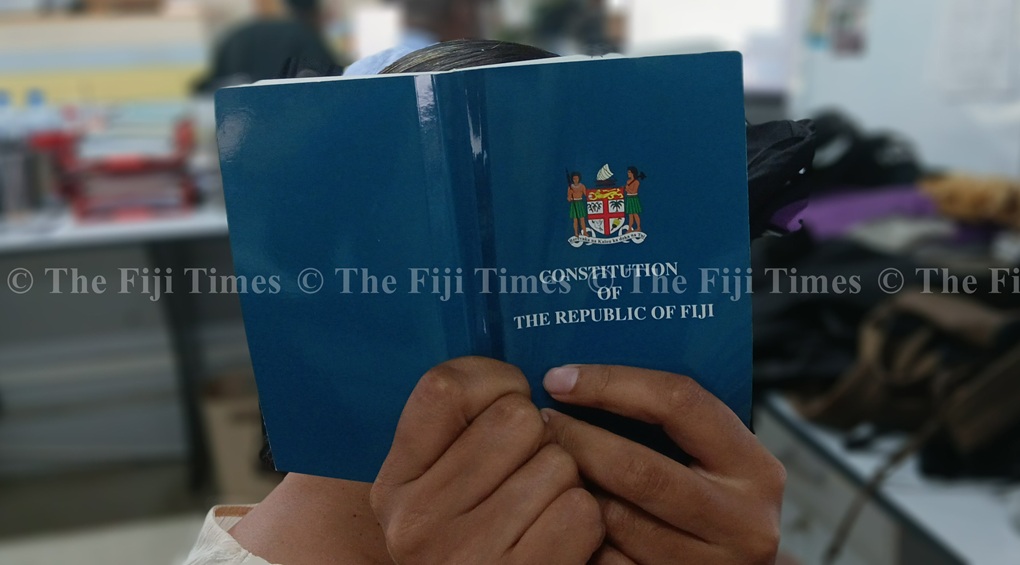The recent debate over electoral reform is not the disease, but a fever – a telling symptom of a profound sickness rooted in the very foundation of our Fiji.
To diagnose the malady, we must look beyond the halls of Parliament. Witness the rampant drug crisis corroding our youth, the hidden terror of domestic and sexual violence, the surge in non-communicable diseases, and the brazen culture of corruption. These are not isolated crises. They are a harvest from a poisoned seed – our 2013 Constitution.
Skeptics demand evidence: Can a legal document truly be blamed for a meth lab or a case of domestic violence? The answer lies not in direct magic, but in systemic cause and effect. A constitution is not merely a text; it is a nation’s operating system. It designs the environment – the institutional framework, power structures, and moral landscape – that either cultivate collective health or allow societal decay to flourish. It is the foundational code that determines whether our society’s institutions are strong or not, its leaders accountable or untouchable, its communities cohesive or fractured.
Our 2013 Constitution was engineered to be more than a set of rules; it was a deliberate framework for societal re-engineering. By systematically dismantling the traditional pillars of iTaukei authority – the vanua – it created a vacuum of moral order and social control. It did not just change how we vote; it sought to change who we are.
The chain of causality is stark and undeniable: The first link is the demise of the vanua and the rise of social decay. The abolition of the constituency system did more than alter our electoral map; it shattered the ancient chain of local accountability. By formally sidelining chiefs, the constitution engineered a collapse of localised authority. This created a void where social ills fester unimpeded. With fewer eyes watching, fewer elders intervening, and a deliberately diminished sense of collective responsibility, the vanua, our primary social immune system, has been strategically weakened. The explosion of drug abuse, domestic violence, and sexual assault are not coincidences; they are the direct consequences of a dismantled social infrastructure.
This leads to the second link: The cult of the individual and the creation of a moral vacuum. The constitution’s philosophical core champions a radical, unrooted individualism that is alien to the iTaukei spirit. It actively erodes the sacred social contracts of veikauwaitaki and mutual assistance, replacing them with a desperate scramble for personal gain. This ethos manifests as the intoxication with power and corruption in high offices, and as the hedonistic escapism – the overconsumption of sugar, alcohol, and vice – that fuels our public health crises. The NCDs pandemic is, in part, a symptom of a society losing its collective purpose and communal bonds.
The final link is a system of impunity breeding a culture of negligence. When those at the highest levels of the State operate with brazen impunity, ignoring the very laws they swore to uphold, it signals to every citizen that the law is a tool for the powerful, not a shield for the people. This top-down culture of lawlessness makes a mockery of collective action, paralyzing our national response to everything from petty corruption to existential threats like climate change. Why should a villager protect the mangrove for the future when a minister can illegally fill a foreshore without consequence?
Critics rightly point to the historical failures of the BLV, and their arguments carry weight. Its past complicity in supporting coups is an indelible stain on its legacy – a betrayal of the very principles of justice it should embody. However, this is precisely where our national conversation must evolve. The BLV that critics condemn is the one that went to drink homebrew under the mango tree and remained there. The re-established BLV is a fundamentally different entity – a revamped platform and a new assembly for a new era. Its membership includes experienced professionals and leaders who were not central actors in the crises of the 1980s. To judge this new body solely by the sins of its predecessor is to ensure we remain trapped in a cycle of blame, forever haunted by the past.
The role of this BLV is not to replicate the partisan political model, but to provide the moral and cultural bedrock within our governance structure. Its thinking is inherently intergenerational, not bound by the frantic, four-year cycles of political campaigns. Its potential is to act as a stabilising force and a guardian, ensuring that the exercise of state power serves the long-term healing of the vanua and all who call Fiji home. It can be the institution that checks power through the unwavering application of the principles of stewardship and communal responsibility.
Therefore, the consistent call from the vanua to repeal and replace the 2013 Constitution is a call for radical constitutional surgery. It is not an attempt to escape the past, but to finally transcend it. We must reject the false choice between a flawed tradition and a destructive modernity. The path forward is to forge a new, uniquely Fijian model – a disciplined, transitional structure that harnesses the stabilising wisdom of our traditions to create a foundation of accountability and cultural integrity. Upon this stable foundation, the true pillars of a prosperous nation – quality education, economic opportunity, and effective healthcare – can finally be built to last.
The bottom line is this: Every kilo of methamphetamine that enters our country, every woman who lives in fear, every child afflicted by a preventable NCDs, and every corrupt dollar pocketed is a direct charge against an illegitimate constitutional order. To hesitate in removing this poisoned root is to be complicit in the ongoing social and spiritual destruction of Fiji. We must find the collective courage to fix this flawed operating system, so that the Fijian body politic can finally begin to heal. The diagnosis is clear. The surgery is urgent. The health of the nation depends on it.



